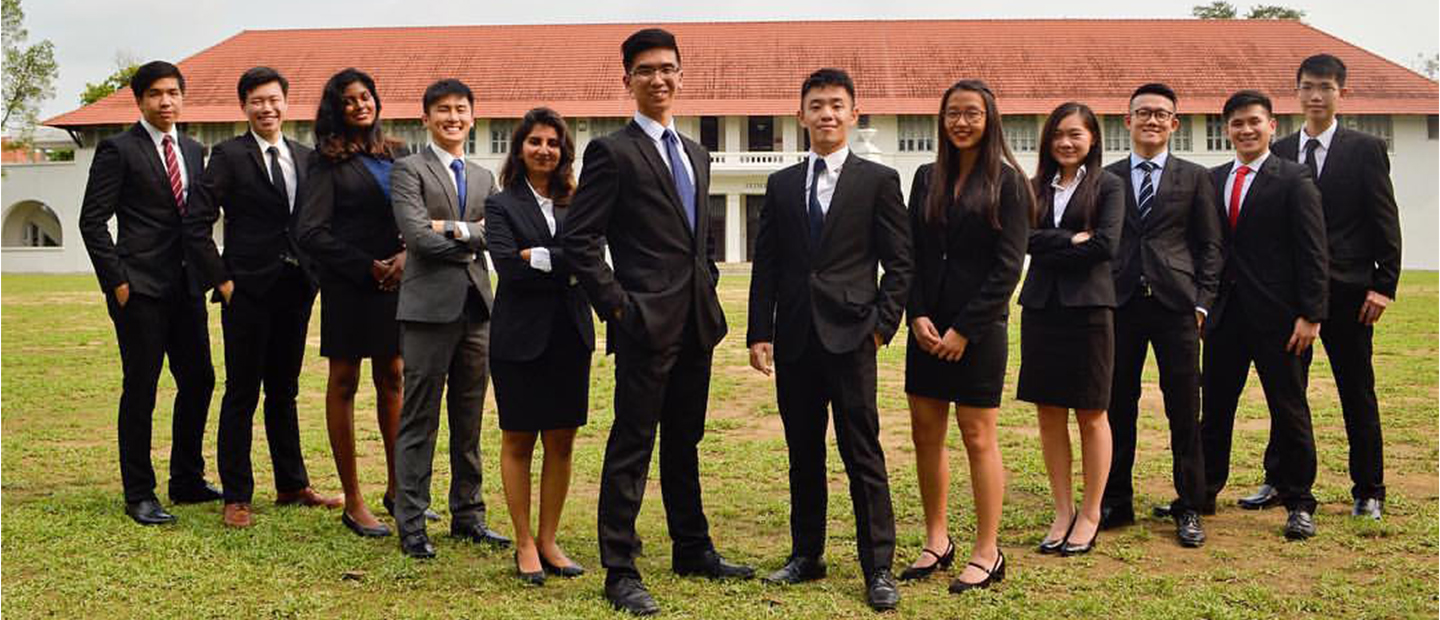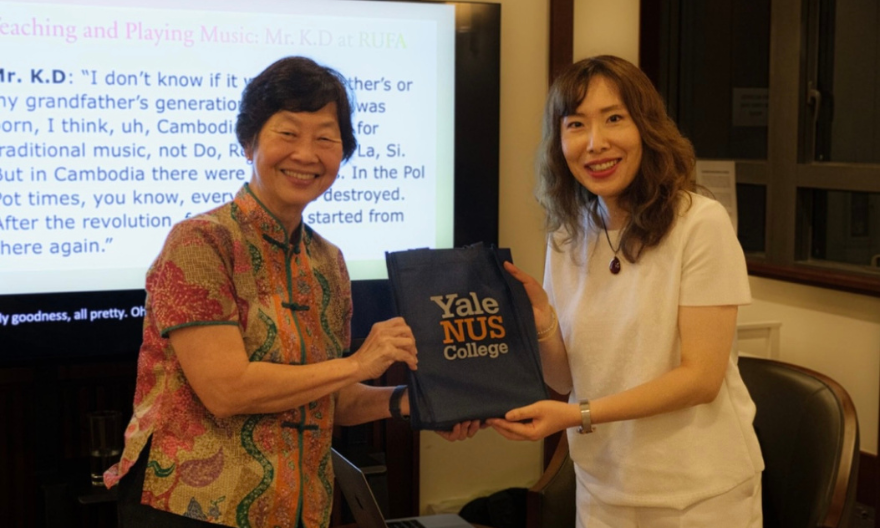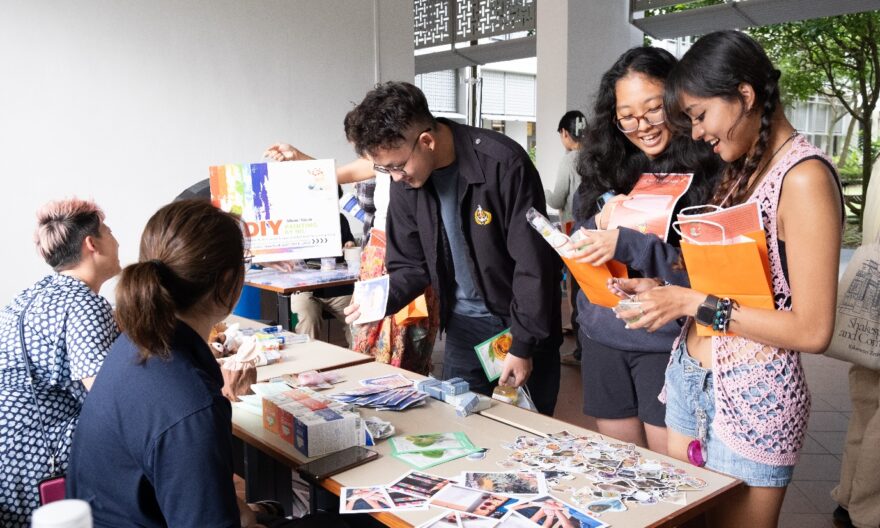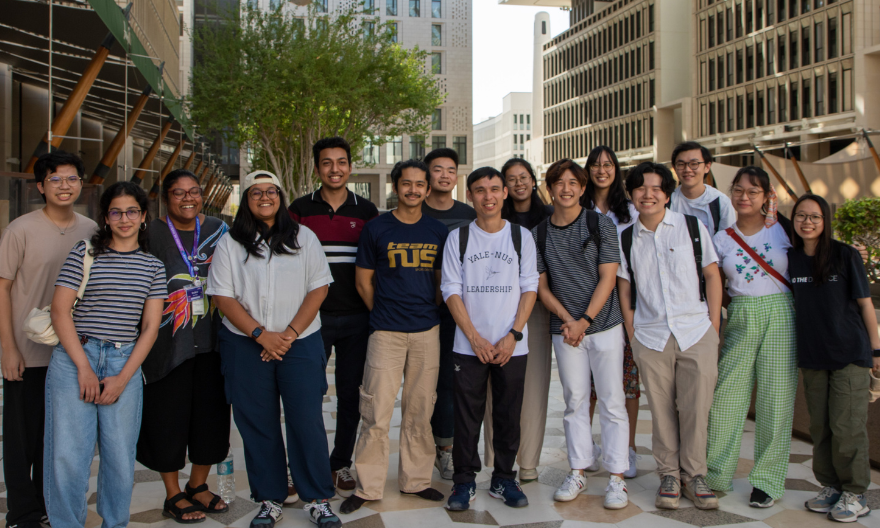Yale-NUS students recognised for active contributions to student-led pro bono initiatives

Last semester, Daniel Ng (Class of 2018) and Amelia Chew (Class of 2017) received awards from the National University of Singapore’s (NUS) Faculty of Law for their work in pro bono projects. To recognise their commitment and passion towards providing quality pro bono services, Daniel was given the Special Recognition Award while Amelia received the Pro Bono Leadership award.
Students in the Double Degree Programme (DDP) in Law and Liberal Arts programme read law at the Faculty of Law at NUS and liberal arts at Yale-NUS College at the same time. This programme provides an interdisciplinary legal education in a residential, liberal arts setting and students graduate with a Bachelor of Arts (with Honours) degree from Yale-NUS College and a Bachelor of Laws (with Honours) degree from the Faculty of Law, NUS.
Upon matriculation at university, Daniel joined The Military Justice Project, an initiative at the NUS Faculty of Law that aims to provide accessible legal assistance to servicemen in the Singapore Armed Forces.
“I had an extremely enjoyable time in the military as a Scout Platoon Commander in an infantry battalion. After I completed National Service, I knew that I wanted to continue to contribute actively to the military. When I learnt about The Military Justice Project, I immediately jumped on the opportunity to continue to serve the military with a more specialised and much-needed skillset,” he shared.
During his term, Daniel and his team worked closely with the Ministry of Defence and the legal community to facilitate the effective administration of Military Discipline through projects like the Military Legal Aid Scheme and the Defending Officers’ Training.
He also started the Military Justice Project –National Police Cadet Corps (NPCC) Basic Criminal Law Programme to educate secondary school NPCC cadets on military law in an engaging manner. It also provided law students with the opportunity to share their knowledge about criminal law with the secondary school students.
According to Daniel, the interdisciplinary experience of reading both law and liberal arts proved useful in his endeavours. “The Yale-NUS experience has helped me to recognise larger systemic problems that have to be fixed before military justice can improve. At Yale-NUS, I met many like-minded peers who are active in advocacy and social change. One of the most important things I learnt was to recognise that advocacy or change in the military justice system cannot be adversarial but should be collaborative in nature. Hence, I focused on building connections and bridges so as to facilitate the easy flow of information between key stakeholders,” he shared.
Daniel has since handed over the baton to another Yale-NUS student, Chong Ren Jie (Class of 2019), to helm the leadership of the initiative. Ren Jie shared that his experience as a Military Police Investigation Officer motivated him to contribute to the Military Justice Project after starting college.
“During National Service, I worked on many cases, both independently and with the team I was attached to. My task was straightforward. That is, to investigate the truth of the matter and to build a case against the accused servicemen. However, after the submission of my investigation papers, I often found myself concerned with the representation of these accused servicemen in the courts martial,” he reflected.
“In my experience, the investigation process is also not only stressful to the servicemen, but to their families as well. Parents often do not know about the types of military offences, punishments and the processes of investigation to prosecution. I felt deeply that something could be done about this and the initiative uniquely positions me to take steps in order to improve this situation,” he added.
Ren Jie led his team in producing a Defending Officers’ Guidebook to assist Defending Officers (DOs) in better representing accused servicemen in courts martial. “While some DOs undergo a course that prepares them for such a role, not all DOs attend this course. Hence, the Military Justice Project aims to educate DOs by distilling the key points into a manageable and digestible guidebook. Once it is ready, we aim to make this publication free and available online so that we can reach out to as many DOs as possible,” Ren Jie explained.
For Amelia, who served as Publicity Co-Head of the NUS Pro Bono Group, she worked with the team to organise legal education workshops called ‘Law & You’ for foreign domestic workers. The aim was to empower them with an understanding their rights and of the law in Singapore.
“My interest in the rights and welfare of migrant workers was first sparked when I attended the legal advocacy training day ‘Legal advocacy within the Association of Southeast Asian Nations (ASEAN) Human Rights framework: addressing migrant rights and human trafficking’ organised by the Humanitarian Organisation for Migration Economics in November 2013,” she shared.
Besides community service, some DDP students also looked into improving accessibility to law-related resources. Cephas Tan (Class of 2018), worked with Koh Wei Jie (Class of 2017) to develop Uppercase, an innovative platform which increased accessibility to parliamentary debates and speeches. This platform has since picked up by the Legal Education Cluster Committee (LECC) at the Singapore Academy of Law, with whom Cephas and Wei Jie were working closely with to further achieve end-user accessibility for other law-related sites.
Cephas shared that it was the chance to take both law and liberal arts classes and the culture of innovation and collaboration at Yale-NUS College that helped him to think of such an idea.
“The programming and computing courses here at Yale-NUS first provided me with a basic understanding of string methods — the backbone technique for all functions in Uppercase. This allowed me to translate feedback in laymen terms to programming terms in working with Wei Jie to develop the programme,” he explained.
“I am also grateful to be immersed in such a culture of passionate and talented individuals here in Yale-NUS, where the meeting of minds can take place over a simple meal together. The Yale-NUS experience has put people with different skill sets together, in developing projects larger than themselves.”




